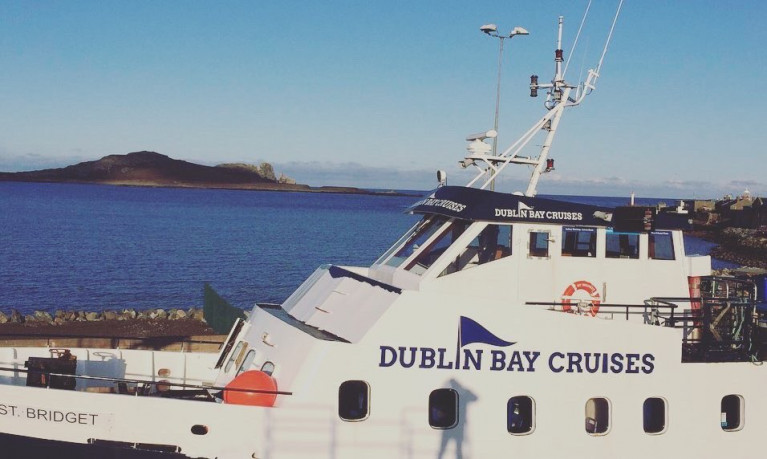Displaying items by tag: Season Resumes
The May Bank Holiday weekend finally marked a particularly eagerly awaited return of Dublin Bay Cruises, following Covid19's dramatic impact on last year's reduced season, writes Jehan Ashmore.
Normally the season starts during the St. Patrick's Festival and so the 2021 season at last can cater for domestic demand from Dubliners and given current restrictions, those from neighbouring counties.
According to Dublin Bay Cruises website, all passengers are asked to bring a face mask and scarf to cover your face while on board. Also to adhere to the 2 metre social distance recommendation when queing to board the two-deck passenger vessel.
Excursions can be taken from 9 cruise options, that collectively connect Dublin Port (Liffey Quays), Dun Laoghaire (East Pier) and Howth (West Pier) and from where is a cruise around Ireland's Eye. In addition a final cruise of the day is back in Dublin Bay with a Dun Laoghaire-around Dalkey Island round trip.
The first passengers to board St. Bridget took place on Saturday when the summer season's opening cruise began to those wanting to get away on to the sea and see the broad variety of natural and mademade coastal landmarks. Also opportunites to spot marine wildlife.
In fact, Afloat observed on Sunday, a repeat of the around Dalkey Island cruise, which involved St. Bridget make a late afternoon transit through Dalkey Sound and rounding off Sorrento Point into the splended scenery of Killiney Bay.
There to welcome the season's inaugural patrons were the crew of the St. Bridget, which presents a most smart appearance of a dark blue hull and white superstructure. The vessel has a bar within the 96 capacity excursion vessel which tge operator also provides for private and corporate charter.
A fresh livery was applied following a 'lift' into the dry dock at Howth Boatyard (see photo) with St. Bridget undergoing routine preparations for this sailing season. Up to then the former Aran Islands /West coast ferry had spent the Winter and Spring tied up as usual in Grand Canal Dock Basin.
Now that St. Bridget is back operating, the excursion vessel is based in Dun Laoghaire Harbour, while alongside St. Micheals Wharf.





























































